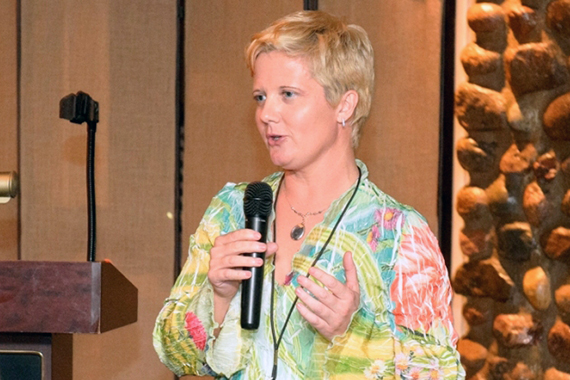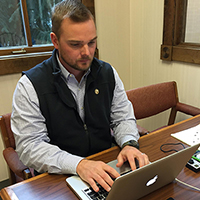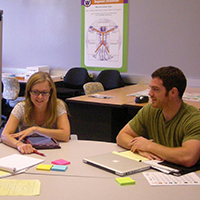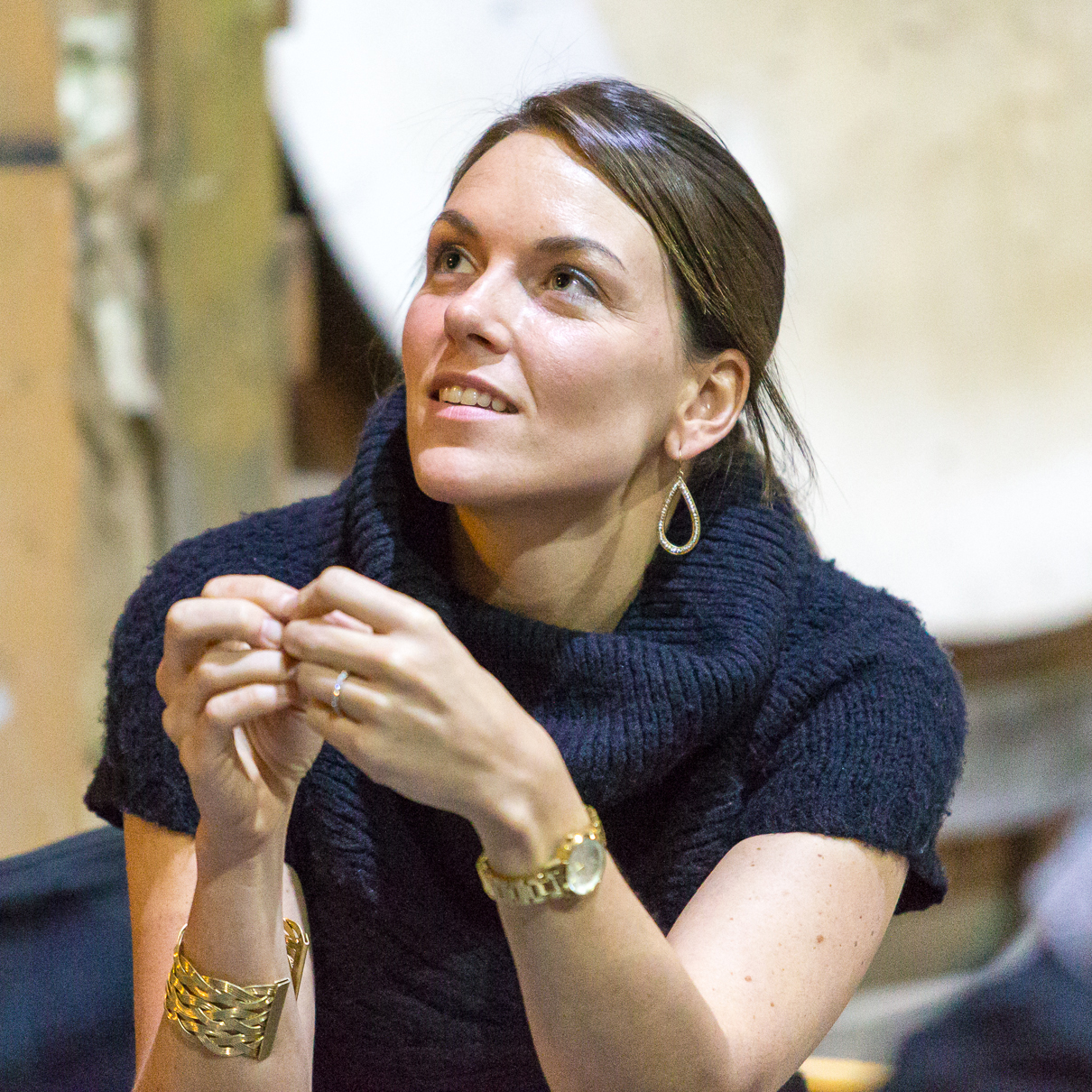 Krannert's Mara Faccio, the Hanna Chair in Entrepreneurship, is a frequent journal contributor and commentator on the topics of international corporate finance, family firms, mergers and acquisitions and corporate political connections. (Photo by Krannert School of Management)
Krannert's Mara Faccio, the Hanna Chair in Entrepreneurship, is a frequent journal contributor and commentator on the topics of international corporate finance, family firms, mergers and acquisitions and corporate political connections. (Photo by Krannert School of Management)
Multitasking Master
Mara Faccio works, rocks and plays hard
Research projects, Bruce Springsteen and golf.
Those are Mara Faccio’s passions and it would be hard to dispute the order.
A professor of finance and the Hanna Chair in Entrepreneurship at Purdue’s Krannert School, the Italian-born Faccio focuses primarily on international corporate finance, family firms, mergers and acquisitions and corporate political connections.
She’s closely examined the interactions between companies and politicians, especially when leaders of business move into the political world and the benefits associated with those close relationships.
The bottom line — Faccio relishes the idea of exposing corruption in the finance world and smiles even thinking about the topic. “Anything that is illegal is always very exciting,” she says.
Faccio is at her best when she’s managing several research projects. She’s juggled as many as 10 journal papers at a time and admits in jest that it might interfere with her new-found affection for golf.
“I’m working more than I should,” she says. “It will make my golf season very problematic!”
Faccio used to spend her summers holed up inside her Krannert office buried in research papers or preparing for the upcoming academic year. Several years ago, however, finance professor John McConnell, the Burton D. Morgan Distinguished Chair of Private Enterprise, bought Faccio a birthday present — golf lessons.
Despite her limited knowledge of the sport, Faccio quickly embraced it with the same zest she brings to her research.
“At some point my work became a bit distressful,” she says. “I thought golf would be a good excuse to do something else every now and then. I started playing and thought it was interesting. Now, I play like a maniac. I talk to other people instead of talking to myself.”
Although a picture of Elvis Presley hangs in Faccio’s office — a product of living in Tennessee and visiting Graceland several times — Bruce Springsteen is her musical passion. While Faccio was growing up in Italy, Springsteen was becoming a worldwide superstar. Her best friend’s father owned a cassette of the musician’s now-classic album, Born in the U.S.A., and Faccio has been a fan ever since.
Faccio, who was a faculty member at Vanderbilt, Notre Dame and Università Cattolica, Milan, before arriving at Krannert in 2008, now owns Springsteen’s entire musical catalogue. “He’s impressive,” she says. “I don’t know how he does it. He’s an incredible performer.”
The same could be said about Faccio when it comes to her research.
Along with Vanderbilt’s Paul K. Chaney and David Parsley, Faccio wrote “The Quality of Accounting Information in Politically Connected Firms,” which is the most cited published article since 2011, according to Scopus.
Faccio’s article titled "The ultimate ownership of western European corporations" (with Larry H.P. Lang) received the JFE All-Star Paper award as the most cited paper in volume 65 of the Journal of Financial Economics. And her authorship of "Political connections and corporate bailouts" (with John J. McConnell and Ronald W. Masulis) was nominated for the Brattle Prize, which is awarded to the best corporate finance paper published in the Journal of Finance.
Her research also has been published in Financial Management, the Journal of Business, the Journal of Corporate Finance, the Journal of International Business Studies and Professional Investor.
Faccio’s only U.S. research study explores political connections with the private equity industry, which has been a popular subject of debate in past presidential elections due to its possible impact on unemployment.
“Because there has been criticism raised by unions and politicians and also supported in some academic studies, we went back to investigate whether or not private equity firms that had political ties are destroying jobs,” she says.
“Part of the reason could be that politicians don’t want to be affiliated with the firms that fire employees, but part of the story could be that these companies are helping politicians win elections by keeping employees that perhaps should be fired,” Faccio reasons. “When politicians win elections, they then give something back to the company in exchange, such as a new contract or funding.”
She’s also excited about tackling regulatory capture — the process in which agencies become dominated by the industries they are supposed to be overseeing, including the telecommunications sector. Instead, the agency acts in ways that benefit the industry rather than the public’s best interest.
Faccio clearly enjoys being productive while multitasking. In fact, she’s even tied a research project to golf.
“We’re looking at executives who play golf and post their scores for their handicap and use information on the course to get a measure of honesty or dishonesty,” she says. “I always try to find something different.”






